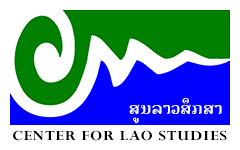CALL FOR PAPERS
The conference invites Lao Studies scholars, researchers and practitioners from all disciplines in the sciences, social sciences, arts and humanities, and all intellectual and political perspectives, to share paper presentations, panel presentations, exhibits, performances, and cultural activities.
The following are included within the definition of “Lao Studies” for the purposes of this conference:
1) The people and places of Lao PDR;
2) Lao/Thai Isan and other ethnic Lao groups in Thailand;
3) Ethnic Lao living in Cambodia;
4) Cross-border ethnic groups living in Vietnam, China, Burma, Thailand and Cambodia;
5) Overseas diaspora originally from Laos or descendants of people from Laos.
CONFERENCE THEME
The theme of the Seventh International Conference on Lao Studies is: Science, society, and healthy futures.
The COVID-19 pandemic has had a profound impact on Laos and Lao Studies since the last ICLS. Lao PDR has been applauded for excellent handling of the pandemic. Yet the crisis has also highlighted many long-running vulnerabilities, including scarcity of funds and expertise in the medical sector, inequality, long land borders, high and increasing dependence on export earnings and mounting debt. The pandemic has lent even greater weight to growing concerns – prevalent both among Lao people and in scholarship – about the health and futures of human bodies, forests, fauna, waterways, fields, and fisheries, but also about the health of cultures, identities, institutions, and bank accounts. For some, such conversations raise questions about state policy, science, expert knowledge, research and the flows of capital and investment. For others, questions of health are profoundly linked to ritual, spiritual landscapes, luck, fate and fortune. Yet another perspective is that of a concern with the health in the sense of healthy relationships, in the family and beyond. This conference, which we hope but cannot be sure will take place in a post-pandemic world, will share and discuss what has been learnt so far through the pandemic years. What has been learnt from, despite, or alongside the pandemic? What have we learnt about Laos, about science and society, and about how health and prosperity can best be conceived of and achieved, now and into the future?
Suggested topics might include, but are not limited to contemporary or historical considerations of:
Agrarian lives and livelihoods;
Agriculture and agrarian transition;
Art, performance, handicrafts and creative works;
Borders and borderlands;
Cities and centres;
Climate change;
Conservation;
Conceptions of the good life, prosperity and well-being;
Debt and financialization;
Disability and chronic disease;
Education and training;
Energy;
Ethnicity;
Food and nutrition;
Forests, forestry, and ecology;
Gender and sexuality;
History and historiography;
Infectious diseases, including dengue, COVID, malaria, and emerging;
International relations;
Land ownership, rights and use;
Language;
Law, crime and justice;
Maternal and child health, policies and experiences;
Mental health;
Peace and conflict;
Policy, politics and power;
Resource extraction;
Ritual and religion;
Science, technology and expert knowledge;
Traditional medicine;
Transport;
Water, waterways and fisheries;
Working conditions and workplace relations;
Welfare, pensions and insurance;
Social media, information technology and the digital revolution;
Socialism;
Trade.
SUBMISSION GUIDELINES
Read the instructions for below for submission types and decide on the kind of submission you wish to prepare. Ensure your submission is relevant to the theme and topics listed above also.
2) Submit abstracts for panels, papers and laboratories online via the 'Submit an Abstract' button by May 31st 2025.
3) The conference abstract committee will review abstracts and send an acceptance letter, scheduling information and other instructions for submitting final abstract statements.
ORGANISED PANELS
Organised panels are composed of 3-4 scholars presenting formal papers and 1 or 2 discussants that can be scheduled into one-and-a-half-hour time slots. Panel organizers are requested to supply the following information:
Title of the panel
How the panel relates to the theme of the conference
Name, institution, address and email of the panel organizer
Name, institution, address and email of each paper presenter
Names, institutions, addresses and email of the panel discussants
Abstract (250 words or less) describing the panel as a whole
Title of each paper and abstract (250 words or less) for each paper
INDIVIDUAL PAPERS
Individual papers will be grouped into panels. The papers must include the following:
Title of the paper
How the paper relates to the theme of the conference.
Name, affiliation, address and email address of paper presenter
Abstracts (250 words or less) with identified keywords.
LABORATORIES
Laboratories are innovative events that depart from the traditional papers-in-a-panel format and are highly encouraged at this conference. Laboratories could take the form of a roundtable discussion, a facilitated networking event, a series of flash papers (presented in 5 minutes each), a hosted “hypothetical” or “counterfactual”, interviews, live peer review, book launches, a debate, an open Q+A or any other format that organizers are willing to propose and host. We encourage you to be daring and creative! Please keep in mind that the standard slot allocated is 2 hours. Normally, a session should involve at least four scholars, but we are open to hearing any proposal.
Laboratory organisers are requested to supply the following information:
Title of the laboratory
How the laboratory is related to the conference theme
Name, institution, address and email of the laboratory organizer
Name, institution, address and email of each participant
Abstract (250 words or less) describing the laboratory as a whole
Description (750 words or less) of how the laboratory will proceed and any special requirements such as material circulated in advance etc.




